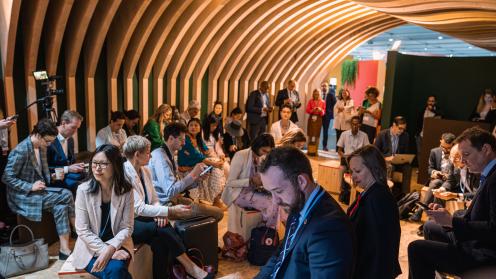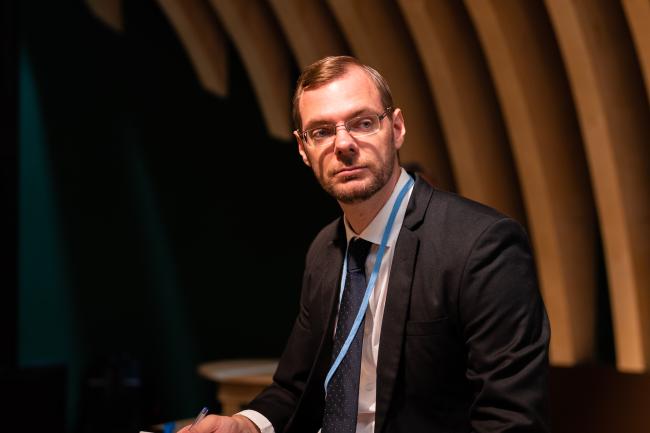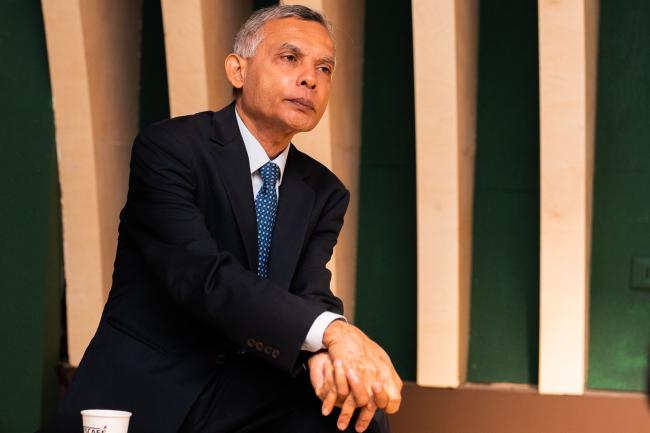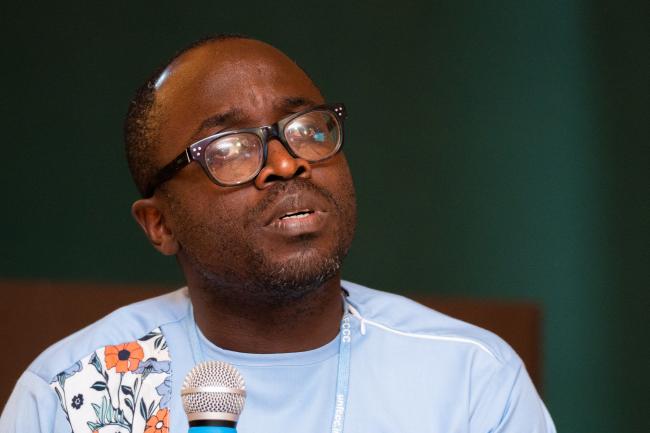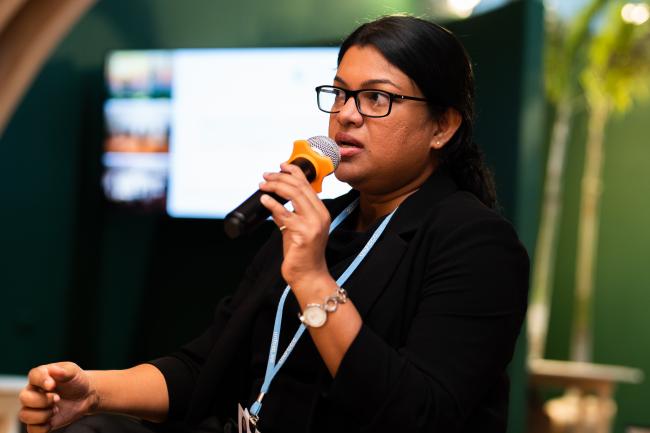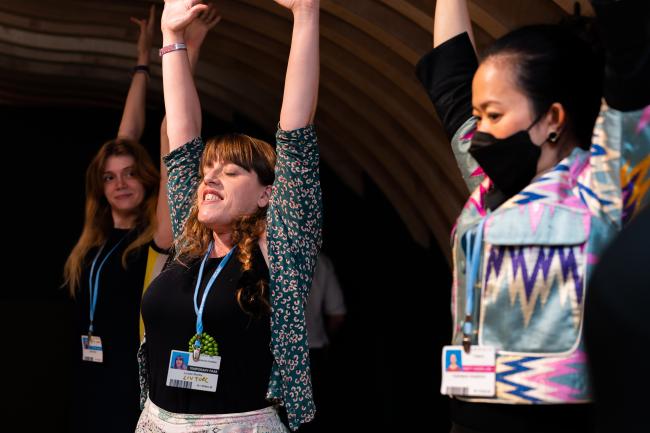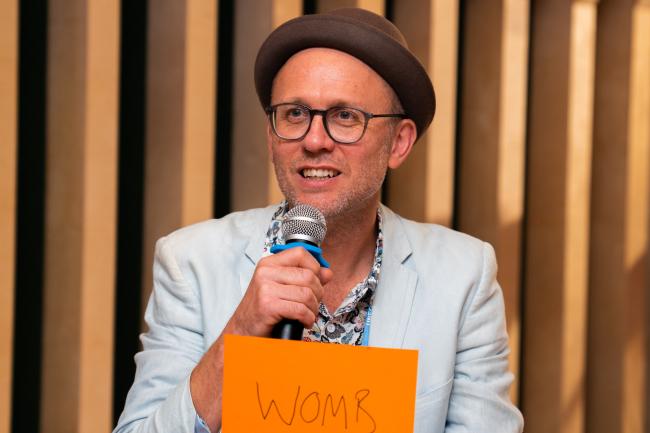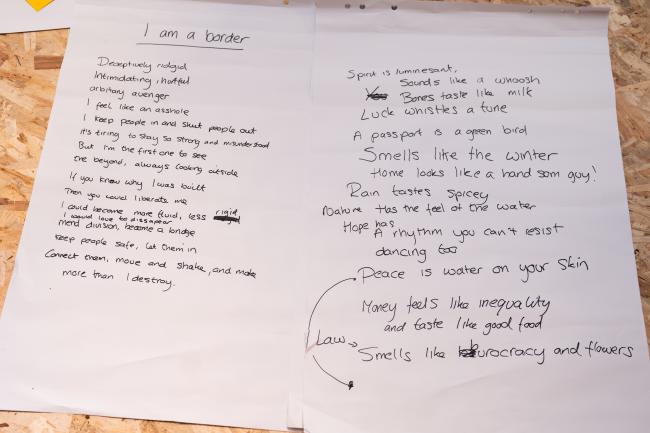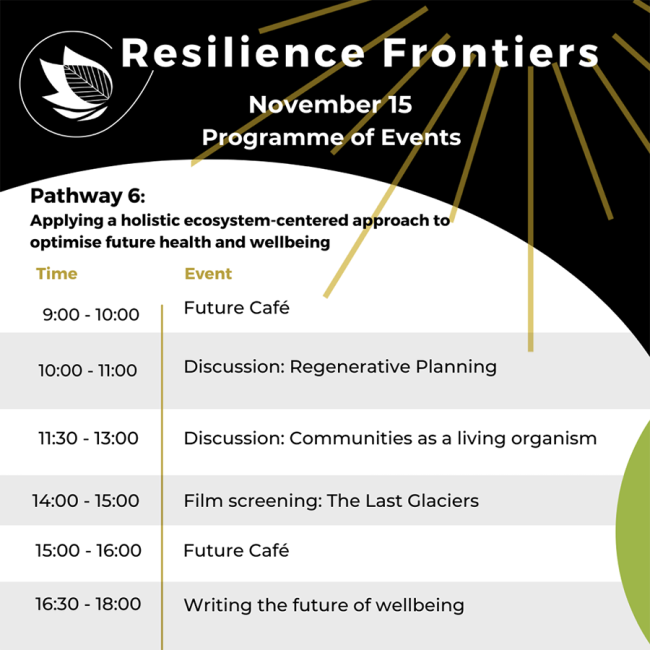Managing Transboundary Issues Equitably
The transboundary movement of resources and people is an important feature of our globalized world, and its proper management is critical in building the desirable future that benefits everyone. On Monday, the Resilience Frontiers Pavilion events dug into this theme, with a particular focus on managing these issues with equity.
In a morning panel discussion, titled “Beyond Boundaries: The Future of Human Mobility and Transboundary Resource Management,” moderator Dennis Mombauer, SLYCAN Trust, opened the discussion by prompting participants to reflect on the different things that flow across borders, and how they imagine these would move by 2030 and beyond.
Thusitha Sugathapala, University of Moratuwa, Sri Lanka, said that sharing knowledge and capacity today does not require as much movement because of advancements in technology that enable, for example, virtual exchanges. In response to a question by Vositha Wijenayake, SLYCAN Trust, on the challenges of the transboundary movement of technology, Sugathapala cited the example of green hydrogen, which raises questions about cross-border transport and trade laws, including those pertaining to intellectual property rights. These rights, he added, may do more harm than good as they can prevent the easy transfer of technology. Countries, he continued, are indeed often keen to keep their intellectual property rights tied to a particular city or region, and, as a result, communities fail to benefit from technology transfers. Other dimensions, such as knowledge gaps and lack of capacity, also need to be considered when technology transfers are conducted, he added.
Solomon Yamoah, Strategic Youth Network for Development, discussed wildlife movement in the African region, citing the example of elephant migration, where corridors must be built for herds to move from one country to another every season. Among reasons for the displacement of people, he cited conflicts in certain African countries that force people to flee to other countries for safe haven, and the construction of dams in the region that overflow every year and result in the destruction of farms. The latter, he added, could provide an opportunity to find farming alternatives or solutions, which could eventually strengthen food security in affected communities. Finally, Yamoah highlighted that while people migrate to other countries because of job opportunities, this form of transboundary migration can be managed by providing more opportunities in home countries to reduce the need to seek employment elsewhere.
Wijenayake outlined the idea of global citizenry, where future cross-border transport and access are not restricted by a visa. In some cultures, she added, when people cross borders and settle in another country, the view is that they take away resources; however, this movement of people offers an opportunity to discover how different cultures and countries can work together. She also opined that if future use of resources can be calculated to be able to forecast people’s needs, this can provide a basis for decision making at a regional level.
Yamoah also pointed out the absurdity of having inexpensive long distance travel while some short distance flights are expensive, noting that flights from Ghana to Kenya are more expensive than those from Ghana to London or the United States. He highlighted the need to envisage free movement of people and resources across the whole of the African region, noting, as a hindrance to this process, differences in investment structures and procedures across Africa. This, he concluded, prevents African countries from contributing to the continent’s development. Statistics show that trade within the region only accounts for 15-20% of total trade, he pointed out, with most of it being made with countries outside rather than inside the continent. To address this challenge, Yamoah outlined his organization’s work on simplifying frameworks within the continent, with the goal of increasing trade within the African region.
In closing the session, Wijenayake emphasized that these conversations must be transboundary as well and suggested the Pavilion organizers make a platform available to ensure conversations go beyond the walls of the Pavilion and COP 27.
In the afternoon, Liv Torc and Chris Redmond of the Hot Poets led a vibrant expressive writing session. Participants were refreshed with a fun workshop that ranked "values’" of words with imaginary betting; helped everyone find their "poetry name"; and engaged in a writing workshop that explored descriptive and sensory language in creating a shared group poem.
This was then connected with an open conversation around the Resilience Frontiers pathway of the day, to create another shared creative expression around the concept of managing transboundary issues equitably.
The Hot Poets is a creative endeavor that aims to bring science and poetry together and communicate the truths about climate change in an engaging and interactive way. They will be running the Future Café at 09:00-10:00 in the remaining mornings, and tomorrow will also provide another chance to be part of an afternoon creative session: "Writing the future of wellbeing. These activities will culminate in a Hot Poets show on Wednesday afternoon.
Organizers: Resilience Frontiers, UNFCCC
Contact: Susan Robertson I srobertson@unfccc.int
For more information: https://resiliencefrontiers.org
To receive free coverage of global environmental events delivered to your inbox, subscribe to the ENB Update newsletter.
